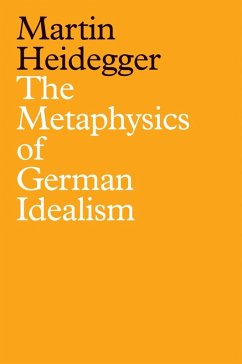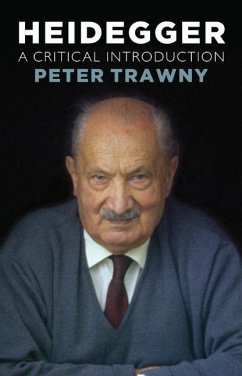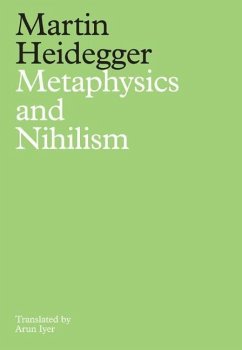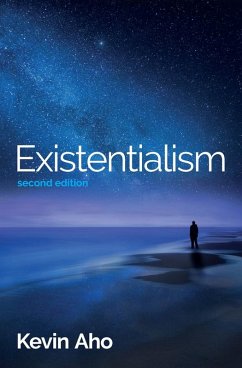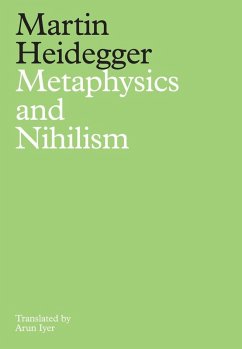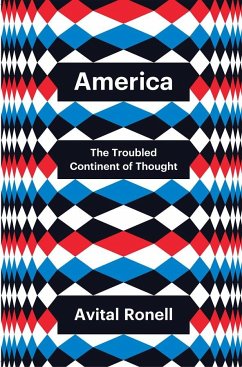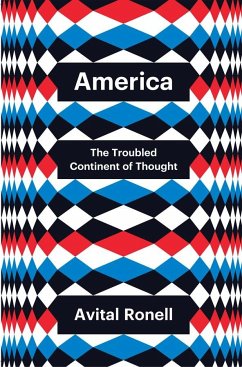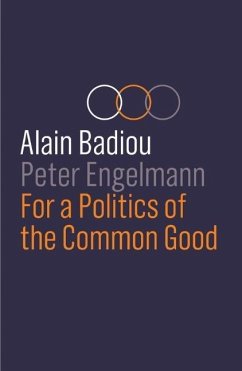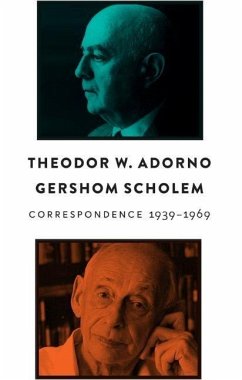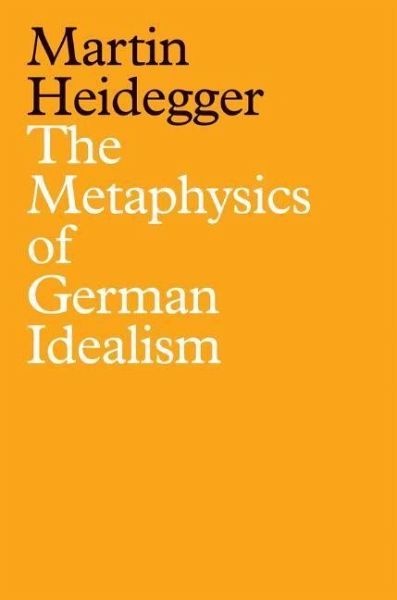
The Metaphysics of German Idealism
A New Interpretation of Schelling's Philosophical Investigations Into the Essence of Human Freedom and Matters
Übersetzung: Moore, Ian Alexander; Therezo, Rodrigo
Versandkostenfrei!
Versandfertig in 2-4 Wochen
61,99 €
inkl. MwSt.
Weitere Ausgaben:

PAYBACK Punkte
31 °P sammeln!
This volume comprises the lecture course that Heidegger gave in 1941 on the metaphysics of German Idealism. The first part of the lecture course contains a preliminary consideration of the distinction between ground and existence. The elucidation of the conceptual history includes a striking confrontation with Kierkegaard's and Jaspers' concepts of existence, as well as an elucidation of the concept of existence in Being and Time, which Heidegger distinguishes from the former concepts. Heidegger's self-interpretation is not an end in itself, however, but rather a way of pointing to Schelling's...
This volume comprises the lecture course that Heidegger gave in 1941 on the metaphysics of German Idealism. The first part of the lecture course contains a preliminary consideration of the distinction between ground and existence. The elucidation of the conceptual history includes a striking confrontation with Kierkegaard's and Jaspers' concepts of existence, as well as an elucidation of the concept of existence in Being and Time, which Heidegger distinguishes from the former concepts. Heidegger's self-interpretation is not an end in itself, however, but rather a way of pointing to Schelling's distinction between ground and existence, whose root and inner necessity and whose various versions Heidegger discusses subsequently.
The second part of the lecture course is focused on Schelling's "freedom treatise," which Heidegger regards as the pinnacle of the metaphysics of German Idealism. Heidegger's consideration of Schelling's distinction between ground and existence finds its guiding thread in the introduction of the realms of being - eternal or finite, each being is a joining of the ground of existence and existence itself. In a subsequent overview, Heidegger discusses the relation of the distinction between ground and existence to the essence of human freedom and to the essence of the human. On the basis of this discussion, it becomes possible to grasp the connection between freedom and evil in Schelling's system.
This important work by Heidegger, published here in English for the first time, will be of great interest to students and scholars of philosophy and to anyone interested in Heidegger's work.
The second part of the lecture course is focused on Schelling's "freedom treatise," which Heidegger regards as the pinnacle of the metaphysics of German Idealism. Heidegger's consideration of Schelling's distinction between ground and existence finds its guiding thread in the introduction of the realms of being - eternal or finite, each being is a joining of the ground of existence and existence itself. In a subsequent overview, Heidegger discusses the relation of the distinction between ground and existence to the essence of human freedom and to the essence of the human. On the basis of this discussion, it becomes possible to grasp the connection between freedom and evil in Schelling's system.
This important work by Heidegger, published here in English for the first time, will be of great interest to students and scholars of philosophy and to anyone interested in Heidegger's work.




